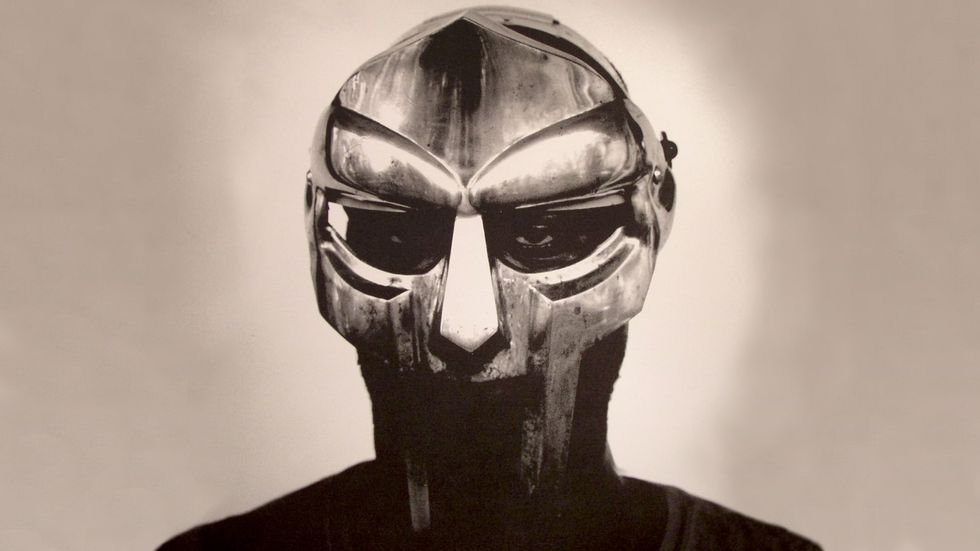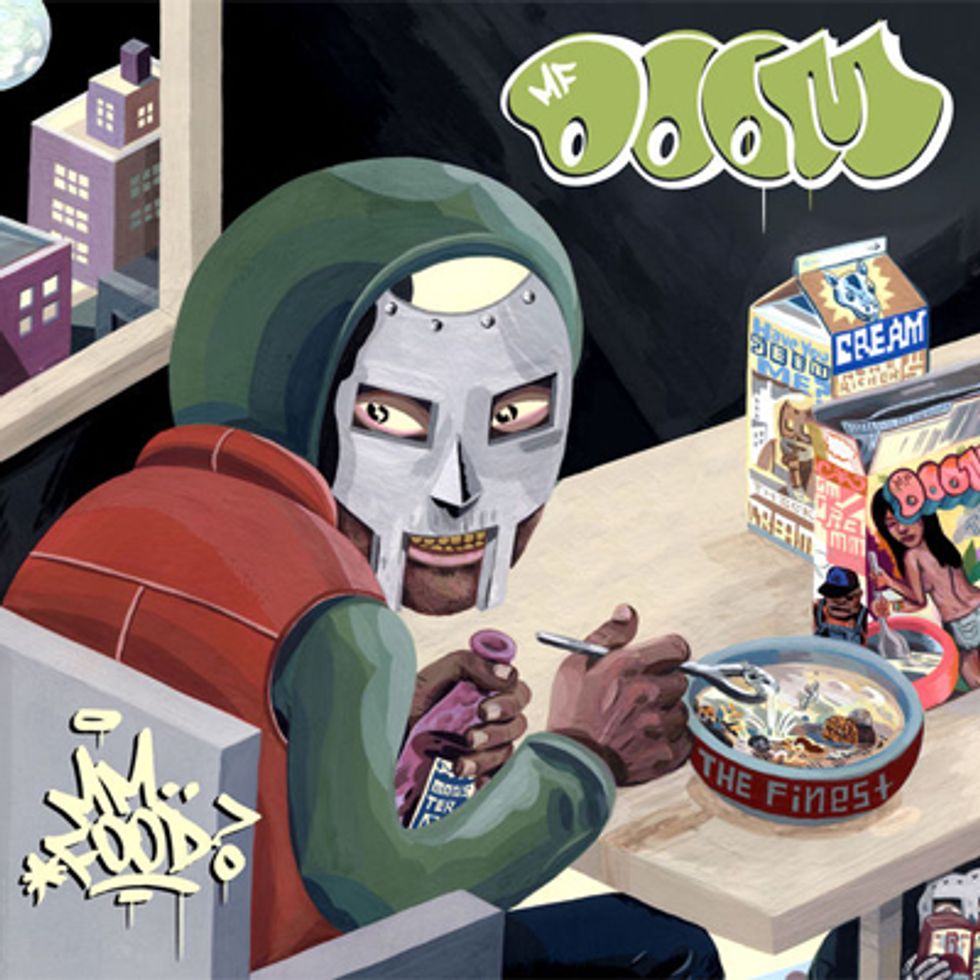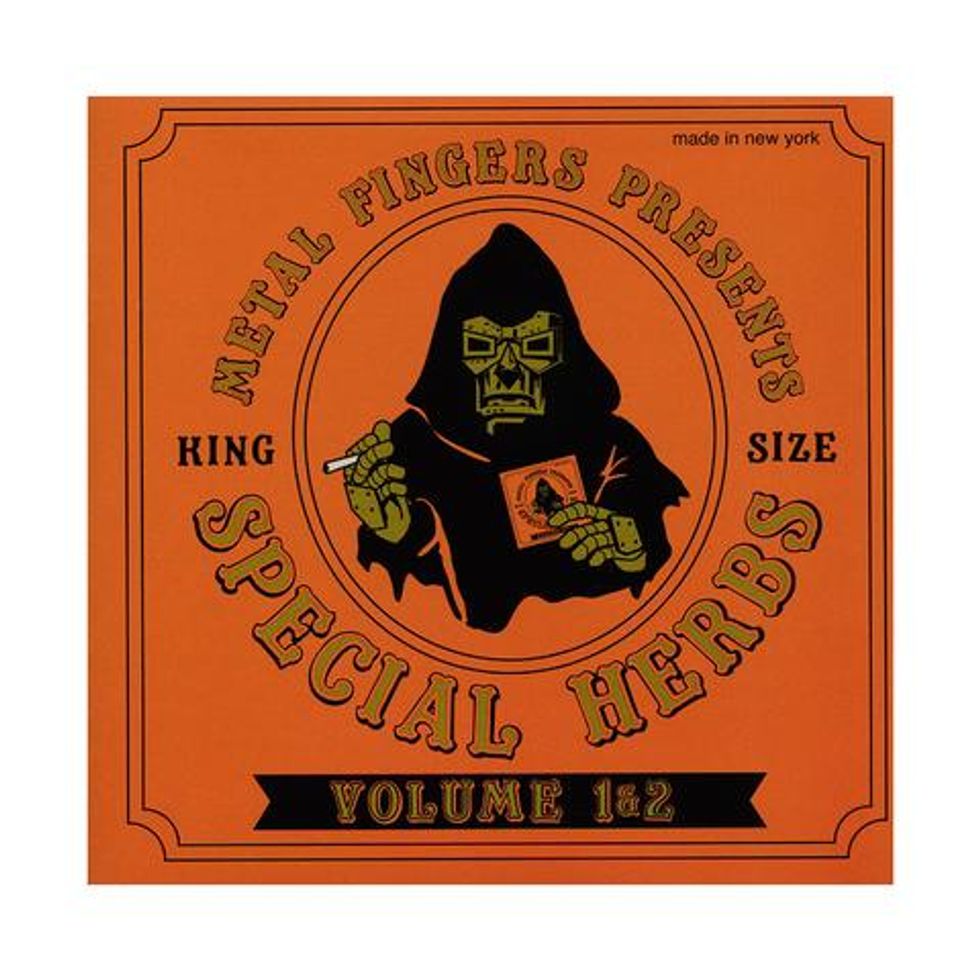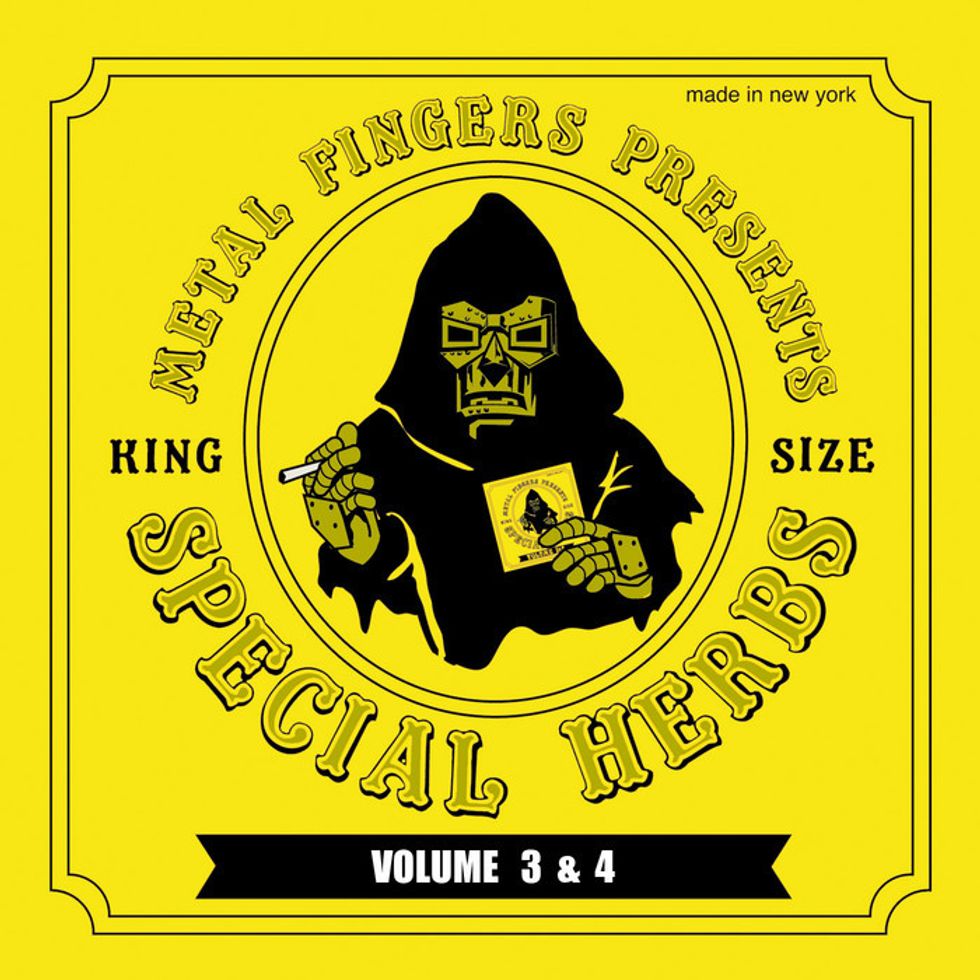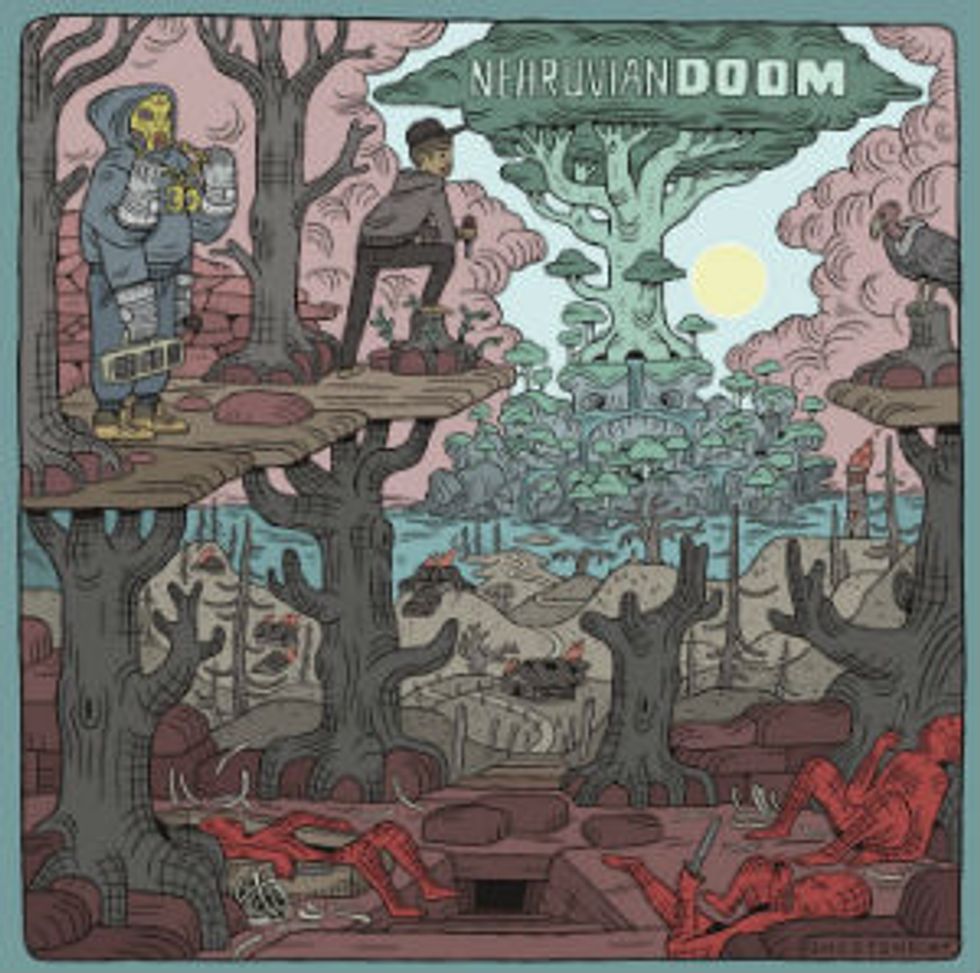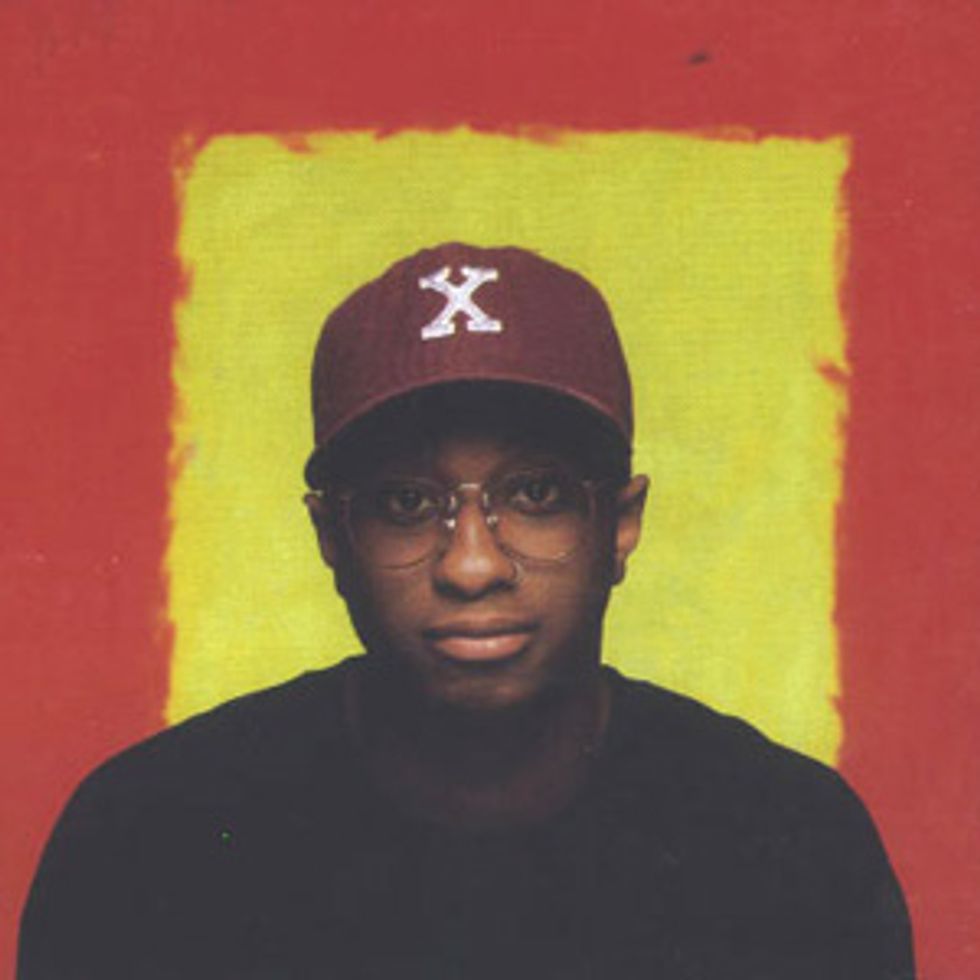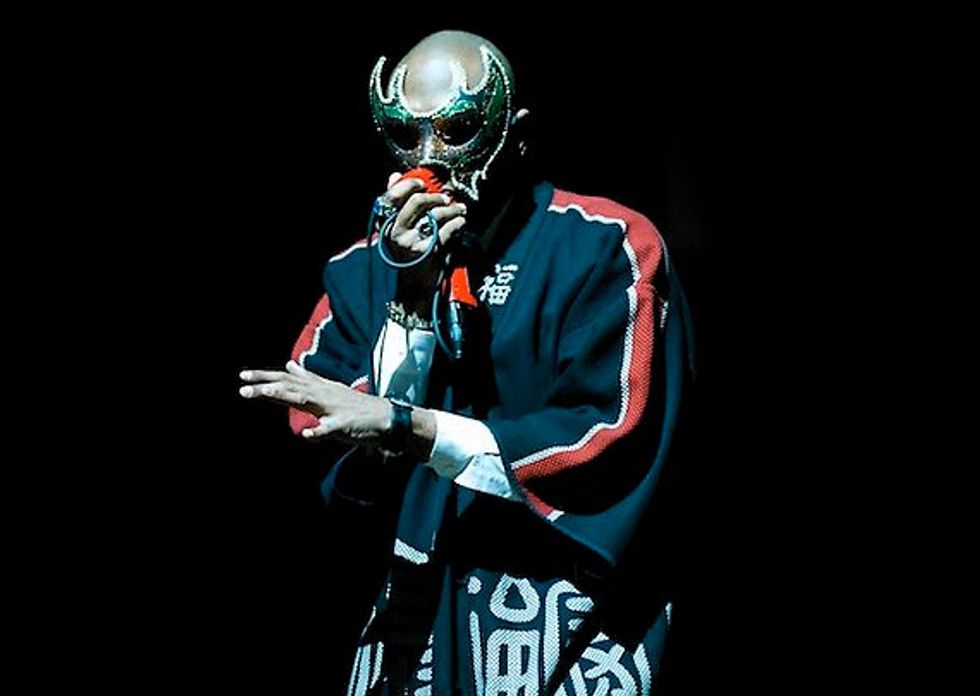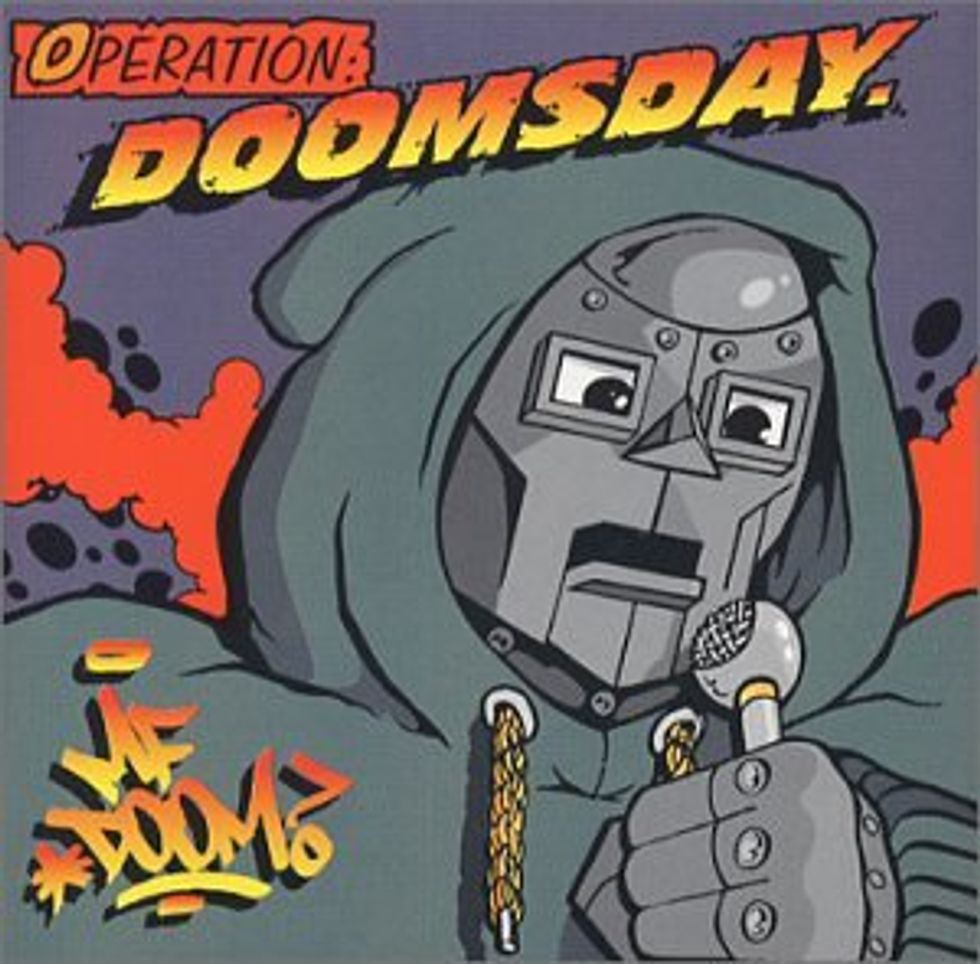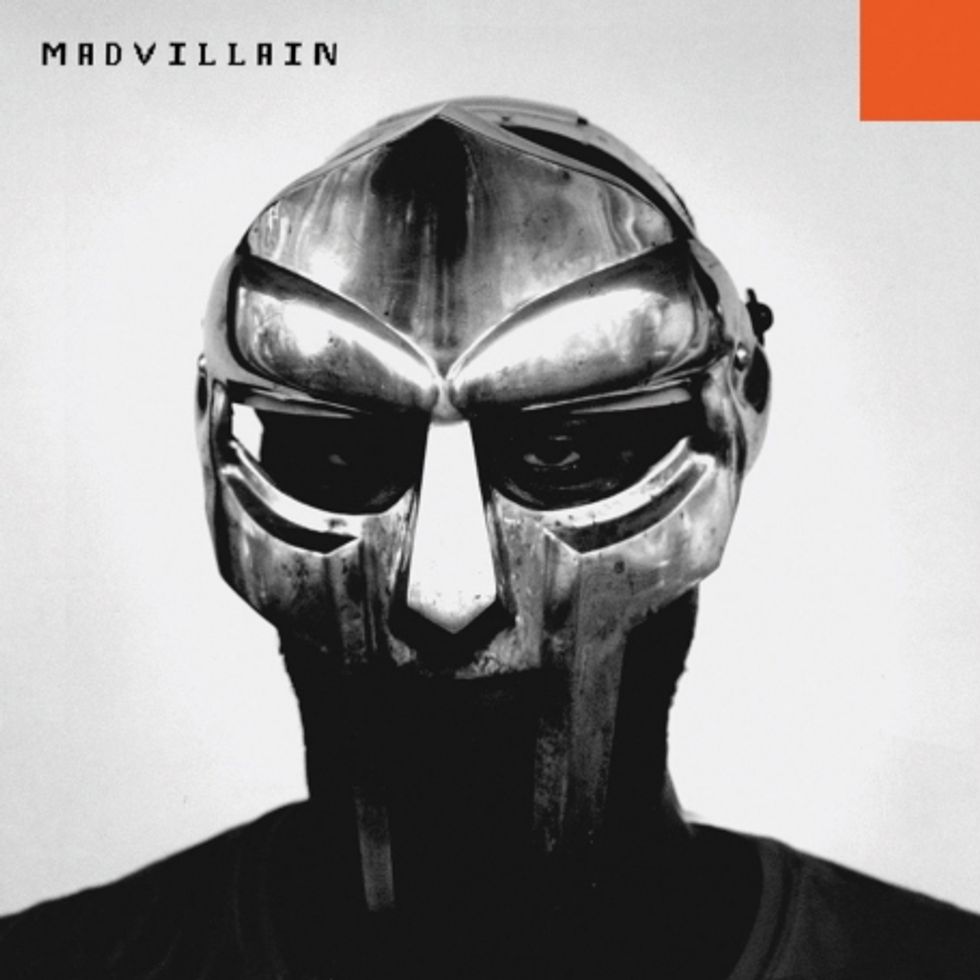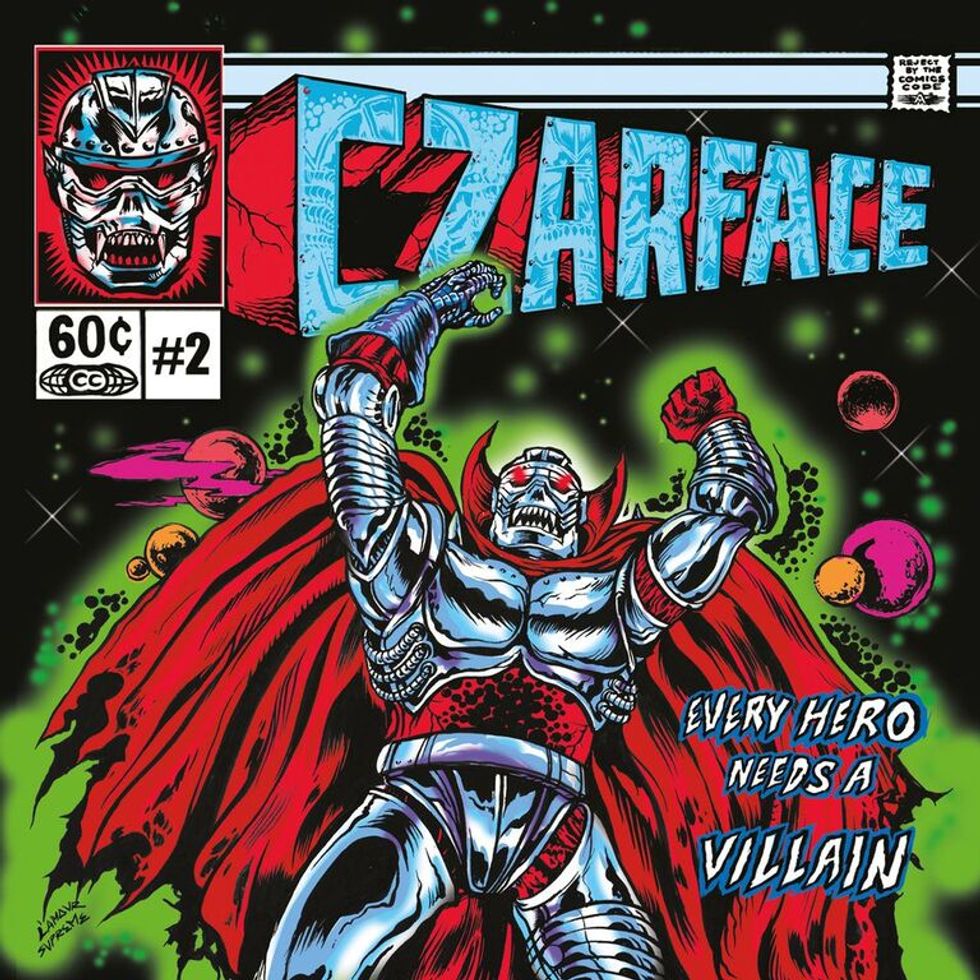"DOOM! Gosh, I wish I brought my autograph book."
Daniel Dumile is a name no one knows. Zev Love X might sound familiar to those who grew up in the underground hip hop scene of the 1990s. MF DOOM is a name almost every hip hop fan knows nowadays. Donning different personas and wearing a mask similar to Marvel Comics villain Doctor Doom, this artist has offered a completely different angle to the modern rap scene for close to a decade. His album "Operation: Doomsday" was the match that began a fiery wave of new age hip-hop: comic book samples, unique beats, and an interesting concept propelled DOOM as a dedicated artist trying to pave the way for a different kind of hip-hop and rap.
My friend Andre first recommended DOOM's album MM...FOOD to me almost a year ago. I heard the name before, but often I overlooked him and simply played the same rap music you hear on the radio today. One night, in my college dorm, I heard this song play off of one of my other friend's playlist. I couldn't help but do a little jig in the old wooden, school-issued chair I was sitting on. When it was over, I looked it up. It was called "One Beer"...by none other than MF DOOM. I listened to the entire album shortly after, and I'm glad I did. It's been nothing but a constant search for more of DOOM's music. He has certainly earned a place as one of the best emcees in the game right now, and has become a inspiration to an entire generation that includes me, a fellow musician, as I try to cut my teeth into the music world.
5. DOOM's Interesting Way of Switching Personas...Yet Still Being Consistent
MF DOOM is simply an origin term for the rapper. It's a name most people think of before finding his other alter-egos: Viktor Vaughn (an ode to the Marvel alter ego of Dr. Doom), Metal Fingers, King Geedorah, and a handful of other clever personas for the 46-year old emcee. His first name, Zev Love X, was used during his run with rap group KMD. Comprised of two other rappers (one being his brother), KMD was seen as a potential trio of newcomers ready to break through...until his brother was killed in an car accident. KMD was dropped from their label immediately, and Zev Love X was basically left in the dark. DOOM emerged a few years later, and his career was born again as fans clamored for more of this mask-clad artist. The way he switches personas over time could be considered a headache to die-hard fans, but for someone like me I think it's brilliant. It keeps DOOM a mystery in terms of genre, but changing up the name could also be an interesting way of changing up an artist's mood when it comes to making music. You could go from a simple rapper using old soul or jazz samples to a genre-bending artist rapping bars over rock music to then possibly an artist producing beats and having artists you've never dreamed of seeing collaborate with you and rap bars over those beats. DOOM is just a mastermind and someone to look up to in that way. If I had the power to change up my name but still be a creditable artist, I'd have dozens of alter-egos that still incorporate the same message or theme.
4. DOOM's lyrics are more than just lyrics. It's storytelling at its finest.
DOOM's way of rapping never changes, though. In fact, he simply goes down a different avenue. However, his consistency as a 'villain' in music remains.In the song "Hoe Cakes" (MM...FOOD), Doom reflects on how he sees himself and other rappers:
Average emcees is like a TV blooper
MF DOOM, he's like D.B. Cooper
Out with the moolah, I let her get an outfit
Just to cool her off she said [explicit] ain't about [explicit]
Here, DOOM subliminally disses fellow rappers but also reflects on his career as an 'under the radar' artist. In the song "All Caps" (off his collaboration album with Madlib, Madvillainy), DOOM sets the record straight on how he wants people to perceive him, most importantly how to spell his name:
Do it like the robot to headspin to boogaloo
Took a few minutes to convince the average bug-a-boo
It's ugly, like look at you, it's a damn shame
Just remember ALL CAPS when spell the man name
As I first started listening to DOOM, I realized his lyrics are entirely him having a conversation with whoever is listening. He has no filter, no regard for how he presents himself, and he's authentic. You can say the same for artists like Kendrick Lamar or even J.Cole, but the atmosphere that DOOM creates with his music lets the fan in us understand where he's coming from in his experiences: losing his brother, missing his wife when he's on tour, and even his most inner thoughts come to life in his music...and he's not afraid to brag about it. That's something to find inspiration in: being your own person, finding a unique edge to your music, and going all in. There's a reward to this risk, and the only thing you'd lose would be the expectations people set in front of you.
In an interview with Red Bull Music Academy in 2011, DOOM offers his take on how he writes:
"As I'm writing it, I-I'm also thinking of it from a listener point of view. So, I try to make it to where--I can catch myself off-guard, like you wanna, you wanna keep the story interesting. Like, as soon as somebody thinks they know what you gonna say, that's part of the essence of rhyming is to not-is to keep everybody kinda off-guard a little. So, I take down and I stretch it with these different--these different things like leave one word blank, you know? Knowing that the listener is following along, and will fill in that blank........It keeps the story interesting....It makes it more fun for me."
The full minute-long interview can be found here: https://www.youtube.com/watch?v=KfwYpJToTYI
3. MM...FOOD remains a constant milestone for hip-hop, even though it remains an underrated album.
MM...FOOD is an album that sticks out from DOOM's immense discography. Released in 2004, the album is mostly samples of old animated adaptations of comic books and food references. The 15-track album takes all of DOOM's love of comic books and food and meshes it together like...well, a great meal. Many fans, including myself, consider MM...FOOD the most prolific and iconic album DOOM has released.
Additionally, this album marks a milestone in hip-hop as DOOM's way of introducing a new wave of sampling and making original music. Samples have always been used in hip-hop since the genre became apparent in the 1980s, but DOOM's solid comic book sampling was presently strong in MM...FOOD. As the album became synonymous with the underground hip-hop scene, many are still calling this an underrated album almost thirteen years later. Why? It's simple: no one has tried to copy MF DOOM's presentation or concepts when it comes to this type of album. It's also the fact that DOOM remains such a constant artist that it's hard to pinpoint one singular album of his as THE one. Sure, there could be close seconds or similarities out there from different artists, but MM...FOOD will remain one of those albums that will be a unique experience when first listening to the whole thing. Then you replay it and that uniqueness remains.
3. DOOM is a multi-talented artist. There's a lot that one man, no, a Villain, can do on his own and inspire us.
DOOM is considered one of the most underrated rappers of this generation. He's also overlooked as one of the most talented producers, as well. Under his Metal Fingers persona, DOOM has released various collections of original instrumentals and beats as Metal Fingers Presents: Special Herbs. The nine volumes of these beats showcase DOOM's ability to make music without spitting bars.
Some tunes to check out off Vol. 1 & 2: "Eucalyptus", "Saffron", and "All Spice".
Some tunes to check out off Vol. 3 & 4: "Lemon Grass", "Styrax Gum" and "Calamus Root".
DOOM the producer continues to bring his own unique style, although most of Special Herbs do not have any big comic book references. When collaborating with Madlib, another instrumental legend in hip-hop, as Madvillain, we hear DOOM the artist. On albums like MM...FOOD and Operation Doomsday, DOOM is a primary production artist along with his rapping.
In 2014, for example, DOOM takes a backseat and has some features on his collaboration with Bishop Nehru as NehruvianDoom while being the producer of the beats found on their album overall:
DOOM's capability to be multi-talented with his music is something many artists, such as hip-hop legends Q-Tip, Nas, and even modern rappers like J.Cole, are also credited as. The reason I celebrate DOOM being multi-talented is that again, we cannot pigeonhole him as just a singular artist. He's a mastermind when it comes to music...don't we all want to be that?
2. DOOM's Mask is just a starting point. Everything else comes with it.
This is what DOOM looked like in the 1990s without the mask. When he was performing as Zev Love X, we see him as a young artist trying to find his niche in the growing era of hip-hop. As the rap trio KMD ended once his brother passed away and their label dropped them, Zev Love X retreated from the music scene for a few years. When he reemerged as DOOM, that's when the mask first appeared. Simply put, the mask symbolized a complete change of creativity with DOOM.
Many have wondered why he wears a mask: it could be a tribute to the Marvel character he took the idea from. It could also be a way of hiding his physical feature so that we, the fans, only know him by his voice. However, DOOM explains to Red Bull Music Academy in the same interview why he dons this flagrant mask:
"...It's a time in hip-hop where things from my point of view started going more to what things look like as opposed to what things sound like, you know what I mean?....See, once this started getting more publicized and, you know, started being--hip-hop started being more of a moneymaking thing, then you get these corporate ideas where you wanna put what it looks like to sell what it sounds like, and we dealing with music...The mask really represents the whole like to rebel against the trying to sell the product as a human being. It's more of a sound...It's more of the message of what's being said, and it's still entertaining...but that message is still there...Villain represents anybody, anybody in here can wear the mask and be the Villain...what do you got to say?"
The video of this part of the interview is found here: https://www.youtube.com/watch?v=-sf8QORmxTI
"It's more of a sound," he says. That's something a true musical artist would say: instead of focusing on how to sell the visual part of the product, artists should focus on the audio of the product and how artists want to promote their word via music. That's something to remember when making the music instead of selling merchandise for it. DOOM's mask has swept his fanbase so much that fellow rapper (and megafan of DOOM) Mos Def donned a mask during a performance when Def covered DOOM's song "Accordion":
And finally...
1. DOOM's sampling is on its own level. You can learn a lot from it.
As previously noted, DOOM's impressive way of using samples in his music all relates to his character: comic books. The Fantastic Four, Spider-Man, and a host of other iconic comic book characters have come to life in his music, most importantly the essence of how DOOM is seen as a supervillain. His (somewhat) debut album "Operation: Doomsday" includes cover art with a full-fledged Dr. Doom-like persona holding a mic; his constant references in his music to comic books are still relevant; and, finally, an artist like DOOM using different kinds of samples as opposed to modern rappers going with soul and jazz samples helps DOOM be in his own category. Rather than take the same jazz and soul samples, DOOM goes one step further and uses his comic book samples to basically make his albums, well, a comic book.
Additionally, contemporary artists like rap group CZARFACE (comprised of producers 7L & Esoteric and Wu-Tang alum Inspectah Deck) have also delve into their comic book interests and have made albums with similar samples of comic book characters like this one:
The way DOOM has managed to be his own artist and provide eons worth of music is inspiring, yes, and at the same time it opens the door for a lot of young, dream-chasing artists like myself to spawn off new ideas that could eventually be seen in the same way as DOOM's. Not to say rip off his characters or music, but rather look at the possibilities of making something your own, not care about the way corporations look at 'trendy music', and, above all else: how you can be a villain and a hero at the same time.


